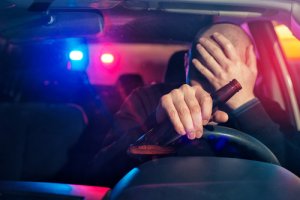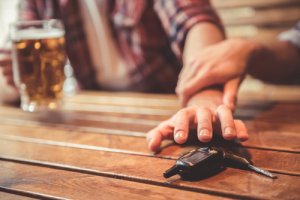Which is Worse: Drunk Driving or Drugged Driving?
With many states legalizing marijuana, and Oregon going as far as to decriminalize possession of most other drugs, one question is on a lot of peoples’ minds: won’t easing restrictions on drug use (legal or illicit) increase injuries and deaths on the road?
Often, a counter-question is posed in response: is drugged driving really any worse than drunk driving?
Of course, we may not be able to answer either question with complete certainty; however, we may be able to at least get some insight on the subject by looking some research.
Let’s see if we can determine which is worse, drunk driving or drugged driving?
Statistics
First, let’s look at some statistics regarding drunk driving and drugged driving and see if there’s anything we can learn by comparing the two.
If you were to purely look at current data and compare the amount of drunk-driving fatalities with that of drugged driving, you’d immediately conclude that drunk driving is much worse based on the sheer volume of alcohol-involved traffic deaths. This may not tell the whole story, but we’ll get to that later.
According to the National Highway Traffic Safety Administration (NHTSA):
- 30 people die in a drunk-driving collision every day (that’s more than 10,000 per year).
- In 2010 alone (the last year cost data is available), drunk-driving deaths and damages cost $44 billion.
- In 2017, 220 children 14 years old or younger perished in an alcohol-involved traffic collision.
Statistics pertaining to drugged driving are a little harder to come by, however we do know that:
- In 2016, the Governors Highway Safety Association concluded that 43.6% of drivers killed in a car crash tested positive for drugs. More than half of which tested positive for more than one drug (note that testing positive for drugs does not necessarily mean one was under the influence while driving).
- In 2018, 12.6 million Americans 16 years old or older drove under the influence of illegal drugs.
- In 2016, 19.7% of drivers that drove under the influence tested positive for opioids.
While drunk driving causes more fatal accidents each year, there are several reasons why we can’t conclude that drunk driving is more dangerous than drugged driving (at least not yet):
- Testing for drugged driving is not as common as for drunk driving. In fact, an accurate roadside test for determining the level of drugs in someone’s system does not yet exist (compare this to the ubiquitous breathalyzer test for blood-alcohol level used by police departments across the country).
- Drivers tested at a crash may have both drugs and alcohol in their system and it can be impossible to determine which substance had a more of an effect on their driving ability.
- Police often won’t test a driver for drugs if they’ve already failed a blood-alcohol test.
- More people drink than do drugs: According to the 2019 National Survey of Drug Use and Health (NSDUH),9% of Americans 18 or older reported drinking in the last month vs. 13% reporting drug use.
Okay, so maybe data won’t give us the whole story, what can we learn about how each substance affects someone’s ability to drive?
How Do Different Drugs and Alcohol Affect Driving?
If we can’t get hard data to prove one drugged driving is worse than drunk driving or vice versa, maybe learning the effects of certain drugs may provide us with some answers. Let’s look at the common categories of mind-altering substances and see how each substance inhibits driving ability.
Depressants
Depressants have a sedative effect, reducing activity in the nervous system and brain. These substances work in different ways, however each has been proven to impair judgement, concentration, and coordination—all things that would negatively affect someone’s driving. Common depressants include:
- Heroin and other opioids. Some studies have concluded that opioids double a driver’s risk of crashing.
- Barbiturates (such as Luminal and other sleeping pills or anti-seizure medicines).
- Benzodiazepines (such as Xanax or Valium).
- Alcohol.
Stimulants
Stimulants speed up an individual’s body systems, raising heartrate and the brain’s supply of dopamine. They’ve been known to improve focus, which sounds like it would actually help someone drive. Not quite: High doses of stimulants often cause increased agitation, loss of coordination, higher probability of risk taking, aggressive driving, and speeding among drivers. Common stimulants include:
- Cocaine.
- Adderall (ADHD medicine).
- Methamphetamine.
- MDMA (ecstasy), which is also sometimes classified as a hallucinogen.
Cannabis (Marijuana)
Cannabis (marijuana) also impairs someone’s ability to operate a motor vehicle. Marijuana slows an individual’s reaction time, impairs their ability to judge time and distance, and negatively affects coordination. Research shows that people driving under the influence of marijuana tend to weave between lanes dangerously and pay less attention to the road.
Hallucinogens
Hallucinogens change an individual’s perception, thoughts, and feelings, and cause hallucinations (i.e. seeing or hearing things that are not there). In addition, these drugs have been known to reduce a person’s inhibitions and affect their decision-making abilities. Clearly, these effects would make it difficult for someone on hallucinogens to drive safely. Common hallucinogens include:
- LSD.
- Psylocibin (mushrooms).
- Ecstasy (MDMA).
- Ketamine.
- DMT.
- PCP.
Which drug do you think most affects someone’s driving ability? If it was up to us, we’d prefer not to share the road with someone under the influence of any substance!
Conclusion
As you’ve probably predicted by now, there’s no way to definitively say whether drunk driving or drugged driving is worse. That said, there are some things we can say with certainty:
- Both drugs and alcohol seriously impair someone’s ability to drive.
- The more impaired someone is, the more likely they are to get in a potentially fatal accident. However, even being slightly impaired on drugs or alcohol noticeably inhibits driving ability.
- Driving sober is always the safest option.
As to whether legalizing certain drugs and decriminalizing others will increase traffic collisions and fatalities, we’ll also have to wait and see; Though according to the Insurance Institute for Highway Safety (IIHS), legalizing marijuana caused a 6% increase in traffic collisions (the study did not compare fatalities). However, this conclusion has been debated, since the study was performed by comparing total accidents in states where marijuana was legal to neighboring states that did not legalize the drug. This data doesn’t necessarily prove marijuana legalization was the cause of increase.
When more data becomes available, perhaps we’ll be able to draw conclusions on which substances are worse for driving and what effect drug legalization has on traffic safety. In the meantime (actually all the time), we recommend you don’t take any chances and always drive sober, no matter the substance in question or the existing laws—if not for yourself than for other people with whom you share the road.

